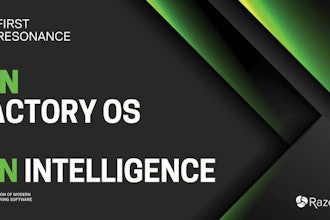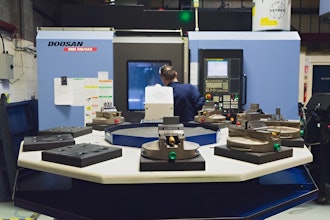
 Anthony Smith
Anthony SmithTechnology has made almost every aspect of manufacturing easier to manage. Everything from developing products to creating newer and faster ways for customers to buy them has changed. As a result, the supply chain must operate almost perfectly to meet the expectations of suppliers and customers alike. To achieve this, communication must be fluid. Efficient communication, however, is easier said than done with so many moving parts and people involved throughout the supply chain. By adopting customer relationship management (CRM) solutions, manufacturers can store customer data, simplify communications and streamline information management with every stakeholder in their supply chain.
Build Relationships By Tracking Details
In order to build lasting relationships with customers, partners and suppliers, manufacturers need to make efficient and personalized communication a priority. Personalized service has emerged as a key component of customer satisfaction across industries in 2016, and this is true for manufacturing, as well.
When suppliers or customers have questions, they don’t want general responses about typical times for fulfillment or service. They want particular information tied directly to their specific orders or problems. In short, they want a relationship, not just a contract.
In order to begin building relationships, managers and employees need a method for storing customer data points. A CRM system acts like a living database where customers’ contact details and relevant information — such as associated emails, customer preferences and financial records — can be housed to create complete customer profiles.
When applied to manufacturing and managing a supply chain, a CRM can help improve customer service by making valuable customer data readily available. Customers then benefit from greater attention to detail and more personalized service. As a result, customers are less likely to look for alternative suppliers, which gives organizations a competitive edge over similar businesses.
CRM Encourages Internal, External Communication
Suppliers, distributors and others all play a role in any manufacturer’s success. If communication becomes too much of a challenge, or otherwise interferes with their own businesses, supply chain partners won’t hesitate to look elsewhere. A CRM helps to solve these challenges by making relevant customer information available throughout the organization.
TRB Lightweight Structures, a manufacturer of products for railroad, aerospace, automotive and other applications, learned this firsthand. By adopting a CRM platform that simplifies the management of customer information as it relates to the supply chain, TRB’s employees can communicate with each other and with outside organizations as needed.
Whenever issues or questions arose, the company could quickly access the required information, such as supplier contacts, specific emails or product specifications. This allowed them to communicate more easily with customers and partners in a timely manner.
It’s often incumbent upon individual departments to manage individual points of the supply chain. Sales, fulfillment and other departments are charged with managing a particular step in the process, but that doesn’t mean they only need information specifically relevant to their share of the work. When a problem arises in one section, the issues can often be traced to another section within the supply chain. But without access to all the data, problem solving becomes a barrier to progress.
Often, manufacturers, like TRB, have relevant information available, but it’s spread throughout disparate solutions or spreadsheets making it a challenge to track down answers. When finding the right data takes longer than it needs to, supply chain delays kill efficiency.
Better Information Makes For A Better Supply Chain
Effective communication largely depends on the availability of the right information. Although CRM solutions store data, it’s not enough just to have that information. Manufacturers need the tools they use in their supply chains to be easily updated and edited by any employee who engages with customers, suppliers or other partners. A platform designed to encourage simple companywide access to relevant information will help teams offer premium service and keep the supply chain moving swiftly.
A CRM can also show trends and patterns, which can help to forecast sales, production processes and purchases. This will help the business as a whole run more efficiently and profitably.
TRB, for example, uses CRM to streamline the way it manages and accesses information, which has improved communication. As a result, its employees can look to the CRM for complete visibility into where customer orders stand in the supply chain, tasks associated with particular opportunities, the need to respond to direct requests or what relevant data is available that could be of use for future sales.
The amount of coordination that goes into managing any supply chain is significant. A single missing piece of data can result in a lost opportunity, missed deadline or other problem that can sour business relationships and cost manufacturers.
The competition in the manufacturing industry is strong and growing, as distance becomes less of an impediment to relationships. From the beginning of a business relationship to the completion of the 40th delivery with a supplier, manufacturers need to maintain a firm handle on their supply chains. At the core of any successful manufacturing supply chain are both strong communication and accurate, accessible data. These two things are improved almost instantly by a reliable CRM solution.
About The Author: Anthony Smith is the CEO of Insightly, a San Francisco-based SaaS CRM application. He built the first version of Insightly in six months from his home in Perth, Australia, after identifying a market need for a CRM solution focused on small business. Prior to Insightly, Anthony worked as a consultant for IBM and as a software engineer for global mining consultancy Snowden.





















